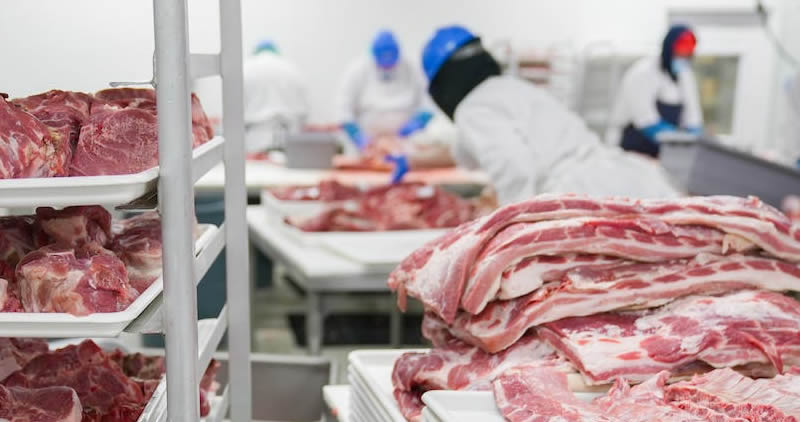Nigeria’s beef industry holds immense promise as one of the largest in Africa, underpinned by the country’s vast livestock population, estimated at over 20 million cattle. With an ever-growing population and a strong cultural preference for beef in Nigerian cuisine, the sector has significant potential to contribute to food security, economic diversification, and employment generation. Yet, despite these opportunities, Nigeria’s beef industry faces critical challenges that threaten its viability and long-term sustainability.
One of the industry’s greatest strengths is its capacity to support rural livelihoods. Cattle rearing is a major source of income for millions of Nigerians, particularly in the northern regions, where it is central to the socio-economic fabric of many communities. The sector also holds considerable potential for value addition, including meat processing, leather production, and the export of hides. With proper investment and innovation, the industry could become a powerful engine for economic growth and rural development.
Moreover, the demand for beef in Nigeria continues to rise. As urbanisation expands and incomes grow, the country’s appetite for animal protein is increasing. This demand offers significant opportunities for farmers, processors, and marketers, making beef a valuable commodity in both domestic and export markets.
However, realising this potential is contingent on overcoming several systemic challenges. Chief among them is the inefficiency of Nigeria’s cattle-rearing practices. The industry remains largely dominated by traditional, nomadic pastoralism, which is labour-intensive and yields relatively low productivity. Limited access to modern technologies, improved breeds, and veterinary care hampers the growth of the sector, leaving it unable to meet the rising demand for high-quality beef.
Insecurity further compounds these challenges. Conflicts between herders and farmers over grazing land have escalated in recent years, driven by population growth, climate change, and desertification in the northern regions. These disputes have disrupted cattle-rearing activities, threatened food security, and strained community relations. Without a comprehensive strategy to address these tensions, the viability of the beef industry will remain in jeopardy.
Another critical issue is the lack of modern infrastructure. From poor roads that hinder the transportation of cattle to inadequate slaughterhouses and processing facilities, the industry’s supply chain is plagued by inefficiencies. These shortcomings not only lead to significant post-harvest losses but also compromise the quality and safety of beef sold in Nigerian markets.
Additionally, Nigeria’s beef industry faces environmental sustainability concerns. Overgrazing and deforestation associated with traditional pastoralism contribute to land degradation, while methane emissions from cattle exacerbate climate change. As global pressure mounts to adopt more sustainable agricultural practices, the industry must find ways to balance production with environmental stewardship.
To unlock the full potential of Nigeria’s beef industry, targeted reforms and investments are essential. First, transitioning from traditional pastoralism to more sedentary, ranch-based systems could significantly improve productivity and reduce conflicts. Ranching allows for better livestock management, improved breeding practices, and efficient resource utilization. However, this transition requires significant government support, including incentives for private investment and policies that ensure equitable access to land.
Second, infrastructure development must be prioritised. Building modern abattoirs, cold storage facilities, and transportation networks would enhance the efficiency and profitability of the supply chain. Such investments would also ensure that Nigerian beef meets international standards, opening up opportunities for export.
Third, the industry needs to embrace technology and innovation. From genetic improvement programmes to digital platforms for tracking cattle health and market trends, leveraging technology can help modernise the sector and boost its competitiveness.
Fourth, addressing insecurity and land disputes is paramount. A holistic approach that combines conflict resolution, land use planning, and climate adaptation strategies is essential to fostering a stable environment for cattle rearing.
Lastly, government policies must focus on supporting small-scale producers, who form the backbone of the industry. Providing access to credit, training, and veterinary services can empower these farmers to adopt modern practices and increase their productivity.
Nigeria’s beef industry has the potential to become a cornerstone of the nation’s agricultural sector and a significant contributor to economic growth. However, its viability hinges on addressing longstanding challenges, including inefficiency, insecurity, and infrastructure deficits. By implementing targeted reforms and fostering collaboration between government, private sector, and local communities, Nigeria can transform its beef industry into a model of sustainable and inclusive growth. The time to act is now—both to secure the industry’s future and to capitalize on its immense promise.





